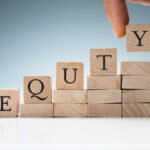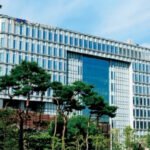
The National Pension Service, South Korea’s state-run pension scheme, is considering using its annual tactical asset allocation (TAA) plan to raise the ceiling on domestic stock investments, according to people familiar with the matter on Sunday.
The potential move could give the country’s largest institutional investors, which is also the world’s third-largest pension fund, more room to buy local shares after this year’s runaway bull market pushed it close to its strategic limits.
The NPS’s domestic equity share has already exceeded 17% of total assets, surpassing its year-end target of 14.9% and nearing the upper boundary of 17.9% allowed under its five-year strategic asset allocation (SAA) framework.
To preserve flexibility, the fund is now exploring whether it can invoke TAA, a short-term, more active management tool that lets it adjust allocations by up to 2 percentage points, effectively lifting the domestic equity limit to 19.9% or reducing it to 9.9%.

An upward revision would create buying capacity worth as much as 30 trillion won ($21 billion), roughly equivalent to a full day’s turnover on the Kospi, the country’s main stock bourse.
A senior government official said there is “growing need to review the permissible range of domestic equity investments,” underscoring the tension between market management and portfolio discipline.
MARKET BOOST OR ARTIFICIAL SUPPORT?
The prospect of additional NPS buying of local stocks has been greeted as a potential tailwind for local equities.
With the Kospi up more than 60% this year, some analysts say even the expectation of additional purchases could buoy sentiment and extend the rally beyond the 4,500 mark.
“Just the perception that NPS might step in provides psychological support to investors,” said one brokerage analyst.

But others warn the move risks blurring the line between market stabilization and intervention.
The fund’s TAA mechanism has historically been used as a buffer against sharp downturns, such as during the pandemic or periods of extreme volatility in currencies and rates, rather than to add risk in an overheated market.
“A public pension fund should act as a stabilizer, not a catalyst for volatility,” said Choi Jae-won, an economics professor at Seoul National University. “Expanding equity exposure more than necessary could undermine market stability.”
POLITICAL OVERTONES AND INSTITUTIONAL RISK
Critics also argue that the timing appears politically charged.
President Lee Jae Myung’s administration has publicly pledged to lift the Kospi index to 5,000, raising concerns that the fund’s independence could be compromised to align with government goals.

Some lawmakers have accused the administration of “mobilizing the NPS to artificially support the stock market.”
Analysts warn that such a precedent could damage the credibility of the NPS’s long-term asset management strategy, which has gradually shifted toward overseas and alternative investments to counter Korea’s slowing growth and aging demographics.
“The fund’s decisions on domestic equity exposure must remain purely investment-driven,” said Kim Yong-ha, professor of IT finance management at Soonchunhyang University. “It should not be influenced by political considerations.”
RECORD EARNINGS IN 2025
The NPS’s assets under management are estimated to have expanded to 1,450 trillion won this month, elevated by the stellar performance of Korean stocks and solid returns from alternative investments.

The fund is believed to have generated nearly 250 trillion won in investment income so far this year alone.
Its total investment returns are estimated to have exceeded 20%, about 100 basis points above its benchmark and its all-time high.
Last year’s record 15.3% return slightly lagged the benchmark by 23 basis points.
According to the five-year plan, NPS has allocated 14.9% of its assets to domestic equity in its target portfolio this year, down from 15.4% by the end of 2024.
The weight will eventually be lowered to 13% by the end of 2029.
On Monday, the Kospi opened up and rose by as much as 2.8% to top 4,050 in the morning in Seoul trading.















